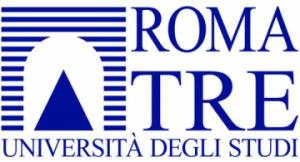By Giuliano Lancioni
The workshop “New Research on Muhammad and the Qur’an: Exegetical, historical and linguistic approaches,” (September 20-21, 2013), which was jointly organized by Sapienza University of Rome and Roma Tre University, aimed to address a number of issues in recent research on the Qur’anic text in its relation to the figure of the Prophet Muhammad. The full program can be viewed here.
Discussion on the first day of the workshop revolved around Tommaso Tesei’s PhD thesis, Two Legends on Alexander the Great in the Koran: A Study on the Origins of the Arabic Sacred Text and its Links to Late Antique Christian and Jewish Literatures (Sapienza University of Rome/INALCO), directed by Angelo Arioli and Abu Aboubakr Chraïbi.* Friday’s session concluded with the presentation of projects by PhD students at Sapienza University of Rome (Ilaria Cicola, Layla Mustapha, Leila Benassi, Marta Campanelli, and Simona Olivieri).
 September 21st was the main day of the conference, held at Roma Tre University. Giuliano Lancioni (Roma Tre University) began the day’s program with a presentation of the Thesaurus Linguae Arabicae project, an ongoing international research project on Arabic corpus linguistics.
September 21st was the main day of the conference, held at Roma Tre University. Giuliano Lancioni (Roma Tre University) began the day’s program with a presentation of the Thesaurus Linguae Arabicae project, an ongoing international research project on Arabic corpus linguistics.
Pierre Lory (EPHE-Paris) gave a talk on animals in the Qur’an and in Tradition, in the framework of monotheistic interpretations of animistic visions.
Guillaume Dye (Université Libre de Bruxelles) presented some reflections on Qur’anic Studies in light of Biblical and New Testament Studies, with a particular reference to the reinterpretation of some unclear Qur’anic passages.
In a talk titled From Medina to Baghdad, Emilio González Ferrín (University of Seville) stimulated the audience with a number of reflections on meta-historical issues about the clash between retrospective narrative and historical causality in Early Islam.
Roberto Tottoli (University of Naples “L’Orientale”) devoted his talk to a presentation of his work on Marracci’s translation of the Qur’an and the translator’s own manuscripts and notes, which Tottoli has been analyzing for some time.
Raoul Villano (Sapienza University of Rome) presented his research on the binary structure of the Qur’an in a synchronic, text-internal approach. Villano’s work includes a large body of literature, drawing significantly from the early commentaries through contemporary exegesis.
Tommaso Tesei (Sapienza University of Rome) presented two examples of a critical reading of the Qur’an drawn from his own PhD thesis.
Marco Boella (Sapienza University of Rome) spoke on various concepts and strategies employed in text mining of the Qur’an.
Presentations were followed by lively dialogue, showing the great interest aroused by recent research on the Qur’an and Muhammad and the importance of discussion forums where diverging hypotheses and theories can encounter one another.
*The PhD committee also included Guillaume Dye, Elisabetta Benigni and Roberto Tottoli. Gabriel Said Reynolds, who was scheduled to be member of the committee, could not attend due to administrative issues and thus was replaced by Pierre Lory, who was already in Rome to attend the workshop.
© International Qur’anic Studies Association, 2014. All rights reserved.
